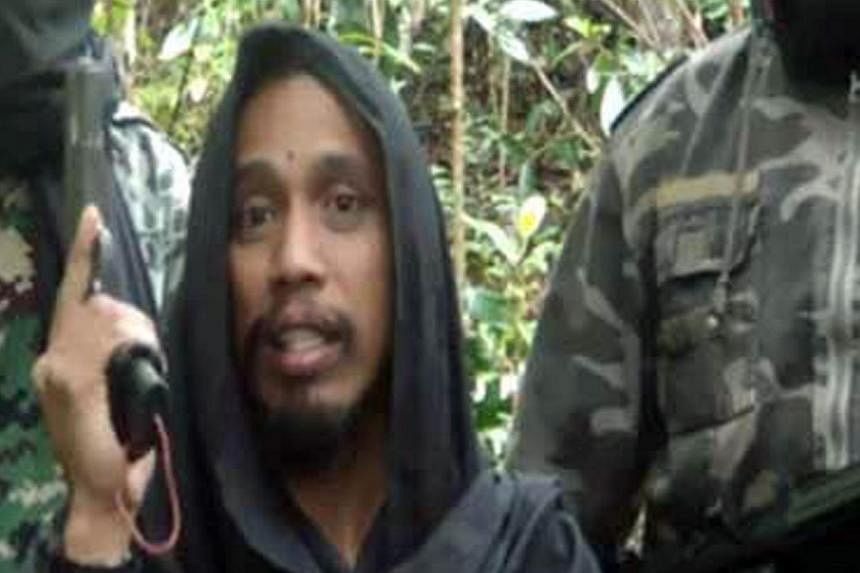EVEN as Indonesian police continue to investigate four ethnic Uighurs arrested in Sulawesi over the weekend on suspicion of terror links, attention is being focused on the rising number of this group from China's restive Xinjiang province making their way to South-east Asia in recent months.
Scores of illegal immigrants from Xinjiang have been arrested in Thailand, Malaysia and Vietnam, and analysts say the trend is linked to rising violence in their home province over the past year.
Many of them arrive in the hope of seeking asylum in Turkey, a country that has been sympathetic to their plight given their ethnic and linguistic kinship, even though few have made it there.
"The vast majority do not support separatism or terrorism," Dr Rohan Gunaratna of Singapore's International Centre for Political Violence and Terrorism Research told The Straits Times.
"However, a very small number of them are involved in supporting extremist activity," he added.
The four men detained in the first known incident of Uighur radicals linking up with militants in Indonesia are believed to have taken advantage of this illegal immigration network, travelling through Thailand and Malaysia.
Indonesian National Police chief Sutarman told reporters yesterday that the four men sought to link up with Santoso, a wanted militant who heads the Eastern Indonesian Mujahidin (MIT) group and has sworn loyalty to the Islamic State in Iraq and Syria (ISIS) in a widely circulated video.
"Why would they want to join Santoso? For training, terror, or whatever, we are investigating... whether this has to do with ISIS, we will examine," he added.
"They were also met by three Indonesians in Makassar, taken to Palu and then to Poso."
Poso is a hotbed for militant activity and has been the site of sectarian tensions in the past.
A terror training camp was discovered in the mountains there in 2012.
Like the ISIS, the MIT seeks to create a global caliphate.
Mr Sutarman acknowledged there was a hurdle in investigations, as the Turkish linguist they called on could understand only 60 per cent of what the men said in Uighur.
The four men arrested had entry stamps for Indonesia in Turkish passports which appeared to be fake, police spokesman Agus Rianto added.
Asked by The Straits Times for China's response to the arrests, Chinese Foreign Ministry spokesman Hong Lei said at a regular briefing that it needed to find out more about the matter.
"Under the current international circumstances, China believes that all countries need to work together to combat terrorism to ensure global peace and security," Mr Hong added.
Chinese media outlets yesterday hardly reported on the arrests, with only the Hainan Daily carrying a brief report from Hong Kong's Phoenix News that described the quartet as Turkish nationals.
But counter-terrorism expert Zhao Gancheng believes the Chinese government would be very concerned as the arrests are further proof of strong links between the extremists in Xinjiang and external groups.
"We're not talking just about ideological links, but also organisational links because if not, the Uighurs would find it very hard to leave China and South-east Asian countries," the Shanghai Institute for International Studies analyst told The Straits Times.
"ISIS' open criticisms of China's policy in Xinjiang have already made China recognise that the group's threat lies not just in Iraq and Syria, but in the region too."
Santoso - most wanted terrorist
SANTOSO, alias Abu Wardah, is not only Indonesia's most wanted terrorist but has also brazenly sworn allegiance to Islamic State in Iraq and Syria (ISIS) leader Abu Bakr al-Baghdadi. "We here in East Indonesia are soldiers of yours," he said in a widely circulated YouTube video that surfaced in July.
The commander of militant group Eastern Indonesian Mujahidin (MIT), he is alleged to be behind the killing of several policemen in recent years.
His militancy dates back to Jemaah Islamiah, which was behind the 2002 Bali bombings.
He has been camped out in the mountains near Poso, Central Sulawesi. He has also appeared on videos to taunt officials and rally supporters.
ZAKIR HUSSAIN

